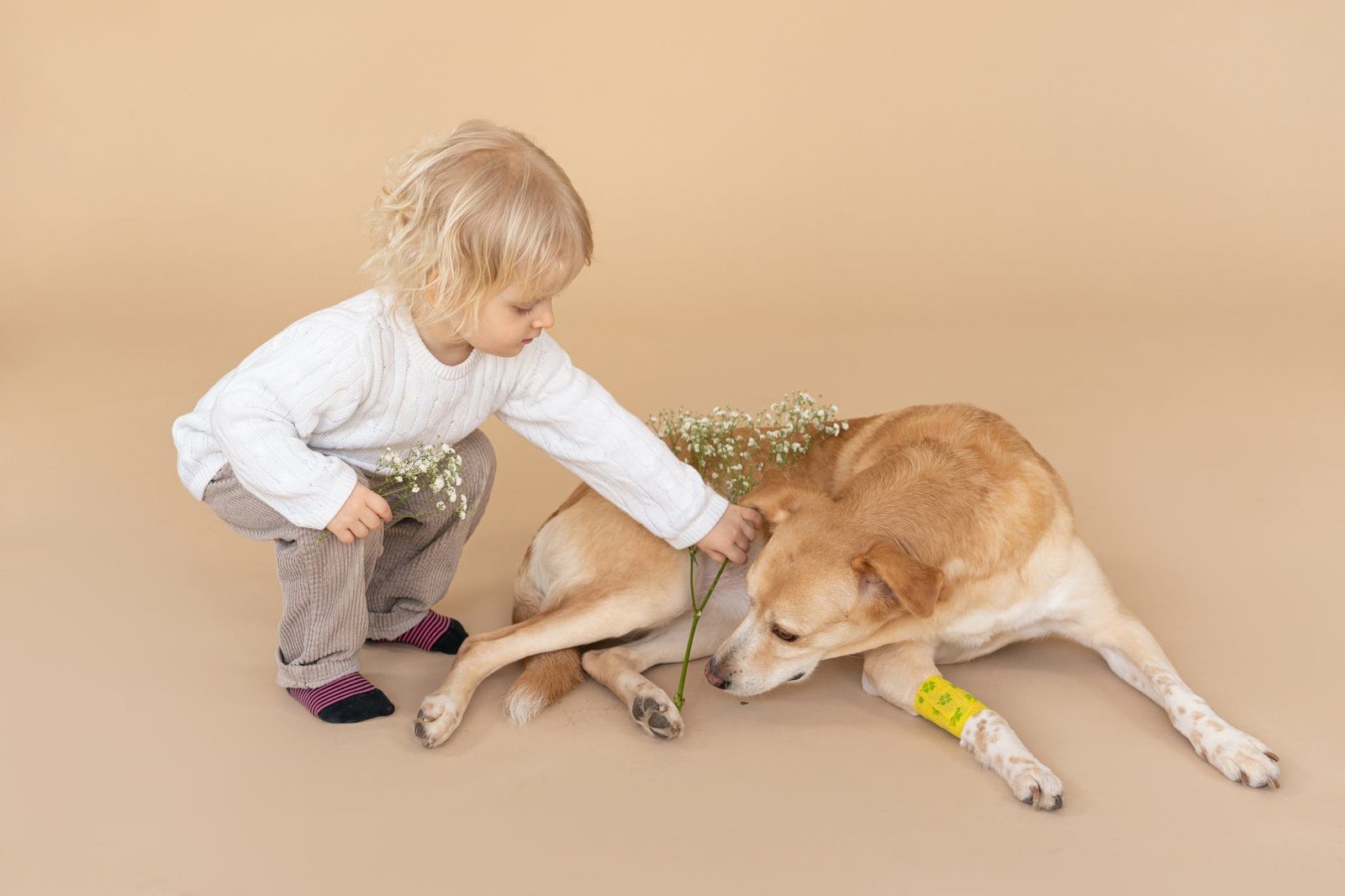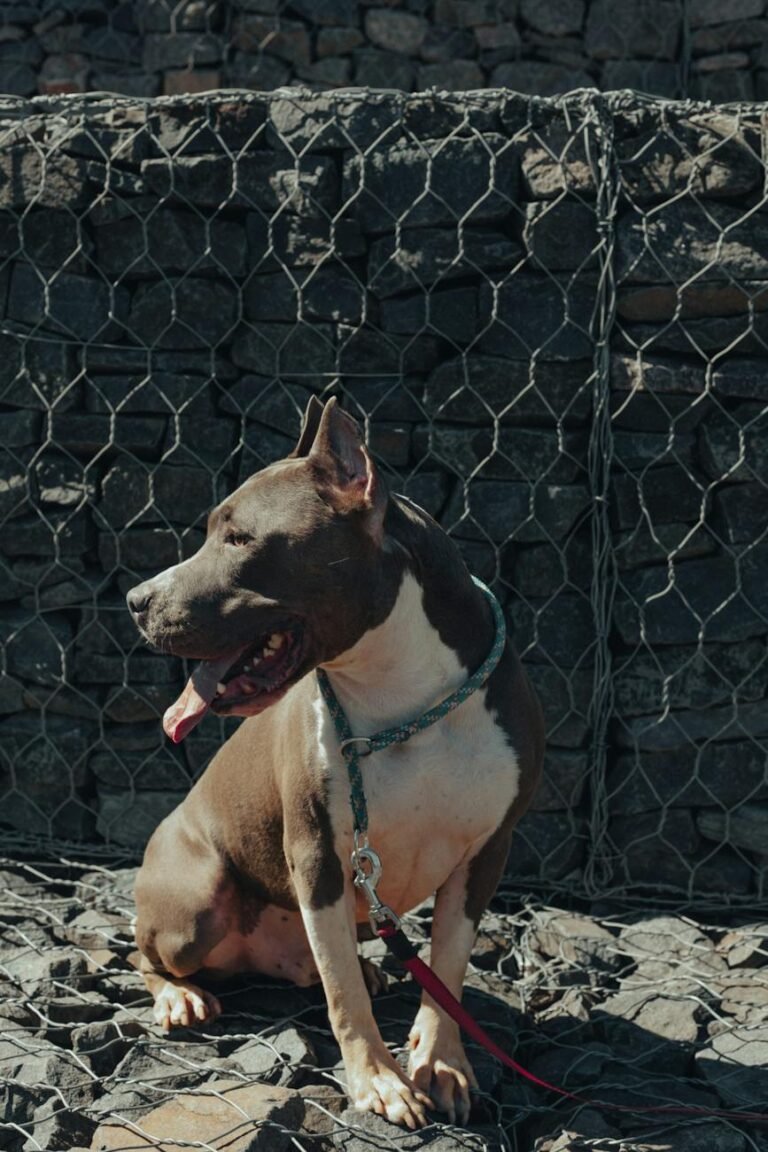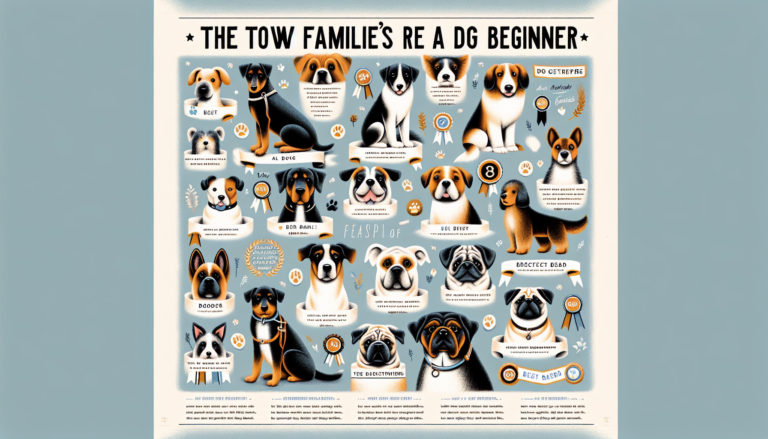A Match Made in Puppy Heaven: Ideal Dog Breeds for Kids
Choosing the Right Dog Breed for Your Family
When it comes to finding the perfect furry companion for your family, choosing the right dog breed is essential. Several factors should be considered to ensure a harmonious and joyful relationship between your kids and the dog. Let’s explore the key factors to consider and the importance of thorough research and consultation.
Factors to Consider
Before bringing a dog into your home, it’s crucial to evaluate various factors to determine which breed will be the best fit for your family. Some key factors to consider include:
-
Size and Energy Level: Assess the size and energy level of the dog and match it with the child’s ability to handle and care for it. Small and medium-sized breeds are often more manageable for young children. Additionally, consider the dog’s energy level, as some breeds are highly energetic and require plenty of exercise and mental stimulation.
-
Temperament and Personality: The temperament and personality of the dog play a vital role in ensuring a positive interaction and bond with children. Look for breeds known for being friendly, patient, and good with children. Labrador Retrievers, Golden Retrievers, and Beagles are examples of breeds that are often gentle and tolerant. However, it’s important to note that individual dogs within a breed can have different temperaments, so spending time with the specific dog being considered is essential.
-
Allergies and Shedding: If anyone in the family has allergies, consider hypoallergenic dog breeds that produce fewer allergens and are less likely to trigger allergic reactions. Breeds such as the Poodle, Bichon Frise, and Portuguese Water Dog are known for their hypoallergenic qualities. Additionally, consider the shedding level of the breed, as excessive shedding can be challenging to manage, especially if family members have allergies or cleanliness concerns.
-
Trainability and Intelligence: The trainability and intelligence of the dog are crucial factors, especially when children are involved. Look for breeds that are known to be easy to train and adaptable, as they are more likely to respond well to commands and learn quickly. Border Collies, Poodles, and German Shepherds are examples of highly trainable and intelligent breeds. A well-trained dog ensures a safer environment for children and enhances the bond between them and the dog.
Importance of Research and Consultation
Thorough research and consultation with reputable sources are essential when choosing a dog breed for your kids. Gather information from breed-specific books, professional dog trainers, and experienced dog owners. Consulting with veterinarians can also provide valuable insights and guidance. By conducting thorough research and seeking advice, you can make an informed decision that considers the specific needs and dynamics of your family.
Remember, each family is unique, and what works well for one may not necessarily work for another. Taking the time to understand the breed’s characteristics, your family’s preferences, and the needs of your children will help you make a well-informed choice.
To explore specific breeds that are known to be great for families with kids, continue reading our article on the best dog breeds for families. By considering the factors mentioned and conducting thorough research, you can find the ideal dog breed that will bring joy, companionship, and love to your family for years to come.
Best Dog Breeds for Families with Kids
When it comes to finding the ideal dog breed for your family, there are several factors to consider. The temperament, size, and energy level of the dog all play a crucial role in ensuring a harmonious relationship between your furry friend and your children. Here are some of the best dog breeds known for their compatibility with kids:
Labrador Retrievers
Labrador Retrievers are one of the most popular family dog breeds. They are known for their friendly and gentle nature, making them an excellent choice for families with kids. Labs are patient, outgoing, and love to be part of the family activities. Their playful and tolerant temperament allows them to get along well with children of all ages. Additionally, Labs are highly trainable and adaptable, making them an easy-to-integrate addition to your family.
Golden Retrievers
Golden Retrievers are another beloved choice for families with kids. They have a reputation for their friendly and tolerant temperament. Goldens are patient, loyal, and eager to please, making them wonderful companions for children. Their gentle nature and love for playtime make them an excellent match for active families. Golden Retrievers are also highly trainable and excel in various activities, such as obedience and agility.
Beagles
Beagles are small to medium-sized dogs that make great family pets. They are known for their friendly and outgoing nature. Beagles have a playful and energetic personality, which can be a perfect match for kids who love to play and explore. They are generally patient and tolerant, making them a suitable choice for families with children. Beagles also have a keen sense of smell and love to follow scents, so it’s important to provide them with regular exercise and mental stimulation.
Bulldogs
Bulldogs are known for their gentle and patient nature, making them excellent family companions. Despite their sturdy appearance, Bulldogs are typically friendly and affectionate towards children. They have a calm and laid-back personality, which can be a great match for families looking for a more relaxed pet. Bulldogs are also a low-maintenance breed, requiring moderate exercise and minimal grooming.
Cavalier King Charles Spaniels
The Cavalier King Charles Spaniel is a loving and gentle-natured breed, making it an excellent choice for families with kids. Cavaliers are known for their affectionate and friendly disposition. They thrive on human companionship and enjoy spending time with their families. Cavaliers are generally good with children and other pets, making them a versatile choice for families. They have a moderate energy level and are adaptable to various lifestyles.
When choosing a dog breed for your family, it’s essential to consider factors such as size, energy level, and temperament. Additionally, always ensure that you provide proper training, socialization, and supervision to create a safe and harmonious environment for both your children and your furry friend. For more information on dog breeds suitable for families, visit our article on best dog breeds for families.
Dog Breeds to Avoid for Families with Kids
When it comes to choosing a dog breed for your family, it’s important to consider the temperament and characteristics of the breed to ensure a harmonious and safe environment for everyone, especially children. While there are many breeds that are known to be great with kids, there are certain breeds that may not be the best fit. Here are a few dog breeds that are generally not recommended for families with kids:
Akita Inu and Shiba Inu
Akita Inu and Shiba Inu breeds are not typically suitable for families with children. These breeds are known for their distrust of strangers and potential aggression towards other dogs and children. Due to their strong-willed nature, they require experienced owners who can provide firm and consistent training and socialization. It’s important to note that proper training and socialization can mitigate some of these challenges, but extra caution should be exercised when considering these breeds for families with kids. For more information on suitable dog breeds for families, visit our article on best dog breeds for families.
Dalmatians
While Dalmatians may be known for their unique appearance and association with the movie “101 Dalmatians,” they are not well-suited for families with children. Dalmatians are highly energetic and require ample exercise and mental stimulation. Without proper outlets for their energy, they can become hyperactive and difficult to manage. Lack of socialization can also contribute to aggression and uncontrollable behavior. Families with young children may find it challenging to meet the exercise and training needs of this breed. If you’re looking for a family-friendly breed, consider exploring our article on family-friendly dog breeds.
Chihuahuas, Toy Terriers, Papillons, and Russian Toys
Chihuahuas, Toy Terriers, Papillons, and Russian Toys are small breeds that may not be the best choice for families with small children. These breeds can easily become jealous and display aggression towards children, especially if they feel threatened or their personal space is invaded. It’s important to supervise interactions between these breeds and young children to prevent any potential issues. Families with small children may want to explore other breeds that are known for their compatibility with kids. For more information on dog breeds suitable for families, check out our article on dog breeds for families.
When selecting a dog breed for your family, it’s essential to consider the specific needs and temperament of the breed. Size, energy level, trainability, and compatibility with children are all important factors to consider. By doing thorough research, consulting with professionals, and considering your family’s lifestyle and preferences, you can find the perfect dog breed that will bring joy and companionship to your family for years to come.
Considerations When Choosing a Dog Breed for Kids
When selecting a dog breed for your kids, there are several important considerations to keep in mind. These factors will help ensure that you find a dog that is compatible with your family’s lifestyle and suitable for your children. Let’s explore the key considerations: size and energy level, temperament and personality, allergies and shedding, and trainability and intelligence.
Size and Energy Level
Choosing a dog breed with an appropriate size and energy level is crucial when considering the dynamics of a family with kids. Small and medium-sized breeds are often more manageable for young children, as they are easier to handle and care for (woombie.com). Additionally, it’s important to match the energy level of the dog with the child’s ability to handle and keep up with an active pet. Some breeds are highly energetic and require plenty of exercise and mental stimulation, while others are more laid-back and require less activity. Assessing the energy level of a breed will help ensure that both the dog and your children are well-matched in terms of playfulness and exercise needs.
Temperament and Personality
The temperament and personality of a dog are vital considerations when choosing a pet for kids. Look for breeds that are known for being friendly, patient, and good with children (woombie.com). Labrador Retrievers, Golden Retrievers, and Beagles are examples of breeds that are often gentle and tolerant. However, it’s important to remember that individual dogs within a breed can have different temperaments. Spending time with the specific dog being considered, interacting with them, and observing their behavior will provide valuable insights into their temperament and compatibility with your children.
Allergies and Shedding
If anyone in your family has allergies, it’s crucial to consider hypoallergenic dog breeds that produce fewer allergens and are less likely to trigger allergic reactions. Breeds such as the Poodle, Bichon Frise, and Portuguese Water Dog are known for their hypoallergenic qualities (woombie.com). Additionally, considering the shedding level of the breed is essential, as some dogs shed more than others. Excessive shedding can be challenging to manage, especially if family members have allergies or cleanliness concerns. By selecting a breed with lower shedding tendencies, you can minimize the impact of loose fur in your home and on your children’s clothes.
Trainability and Intelligence
The trainability and intelligence of a dog are crucial factors to consider, especially when children are involved. Look for breeds that are known to be easy to train and adaptable, as they are more likely to respond well to commands and learn quickly. Border Collies, Poodles, and German Shepherds are examples of highly trainable and intelligent breeds (woombie.com). A well-trained dog ensures a safer environment for children and enhances the bond between them and the dog. It’s important to devote time and effort to training your dog to ensure they understand and follow commands effectively.
Considering the size and energy level, temperament and personality, allergies and shedding, as well as trainability and intelligence, will help you make an informed decision when choosing a dog breed for your kids. Each family is unique, and it’s important to find a breed that aligns with your specific lifestyle and preferences. Taking the time to research and consult with breeders or shelters will ensure that you find the ideal companion for your children, creating a loving and harmonious relationship between your family and your furry friend.
Reducing the Risk of Dog Bites
When bringing a dog into a family with kids, it’s essential to prioritize safety and take steps to reduce the risk of dog bites. Proper training and socialization, as well as choosing the right source for your furry friend, play key roles in creating a harmonious environment for both children and dogs.
Proper Training and Socialization
According to a study, proper training and socialization are crucial in reducing the risk of dog bites, especially when children are involved (The Scotsman). Dogs that have been well-trained and socialized are generally more tolerant and less likely to display aggressive behavior towards children. It’s important to provide obedience training to establish boundaries and teach appropriate behavior to your dog. Positive reinforcement techniques, such as rewards and praise, can be effective in shaping desired behaviors.
Socialization is equally important to ensure that your dog is comfortable and confident in various environments and with different people, including children. Exposing your dog to different situations, other dogs, and supervised interactions with children from an early age can help them become well-adjusted and less prone to anxiety or fear-based reactions. Enrolling in puppy socialization classes or seeking guidance from professional trainers can provide valuable support in this process.
Importance of Breeders and Shelters
Thorough research and consultation with reputable sources, such as breed-specific books, professional dog trainers, and veterinarians, is crucial when choosing a pet dog for kids (woombie.com). Reputable breeders and shelters play a vital role in ensuring that dogs are responsibly bred, well-cared for, and have undergone appropriate socialization. Working with a reputable breeder or adopting from a shelter can help ensure that the chosen dog is a good fit for your family’s lifestyle and needs.
Reputable breeders prioritize the health and temperament of their dogs, breeding for good temperaments and selecting dogs with positive traits. They can provide valuable insights into the breed’s characteristics and offer guidance on training and socialization. Shelters often assess the temperament and compatibility of dogs with families, helping to match them with suitable homes. Adopting from a shelter not only gives a deserving dog a second chance but also provides an opportunity to create a lasting bond with a loving companion.
By focusing on proper training, socialization, and choosing dogs from responsible sources, you can greatly reduce the risk of dog bites and create a safe and harmonious environment for your family and your beloved furry friend. Remember, dogs and children thrive in an environment of love, understanding, and respect.
Best Dog Breeds for Families with Kids
When it comes to finding the perfect dog breed for your family, there are several factors to consider. The breed should not only be compatible with your lifestyle but also be well-suited for living with children. In this section, we will explore some of the best dog breeds for families with kids.
Labrador Retrievers
Labrador Retrievers are one of the most popular family dog breeds, and for good reason. They are known for their friendly and gentle nature towards kids. With their outgoing and tolerant temperament, Labradors make excellent playmates for children. Their adaptability and trainability also make them a great choice for families (AKC).
Golden Retrievers
Another top choice for families with kids is the Golden Retriever. These dogs are known for their friendly and tolerant nature, making them excellent companions for children. Golden Retrievers are patient, intelligent, and eager to please, which contributes to their suitability for family life. They are also highly adaptable and can easily integrate into various household routines (AKC).
Beagles
Beagles are small to medium-sized dogs with a friendly and outgoing nature, making them great family pets. They are known for their pack-oriented and sociable personalities, making them an ideal choice for families with kids. Beagles are also adaptable and can thrive in various living situations, making them suitable for families with limited space (AKC).
Bulldogs
Bulldogs make excellent family companions and are known for their gentle and patient nature towards children. Despite their sturdy appearance, Bulldogs are affectionate, easygoing, and enjoy spending time with their human family members. Their calm and reliable temperament makes them an ideal choice for families with kids, especially those seeking a loyal and loving companion (AKC).
Cavalier King Charles Spaniels
The Cavalier King Charles Spaniel is a loving and gentle-natured breed, making it an excellent choice for families with kids. These dogs are highly affectionate, patient, and enjoy being around children. Cavalier King Charles Spaniels are adaptable and can thrive in various family environments, providing love and companionship to children of all ages (AKC).
When choosing a dog breed for your family, it’s important to consider factors such as size, energy level, temperament, and trainability. Additionally, keep in mind any specific requirements or preferences your family may have, such as hypoallergenic breeds or low-shedding options. For more information on choosing the right dog breed for your family, explore our articles on family-friendly dog breeds and dog breeds for first-time owners.







